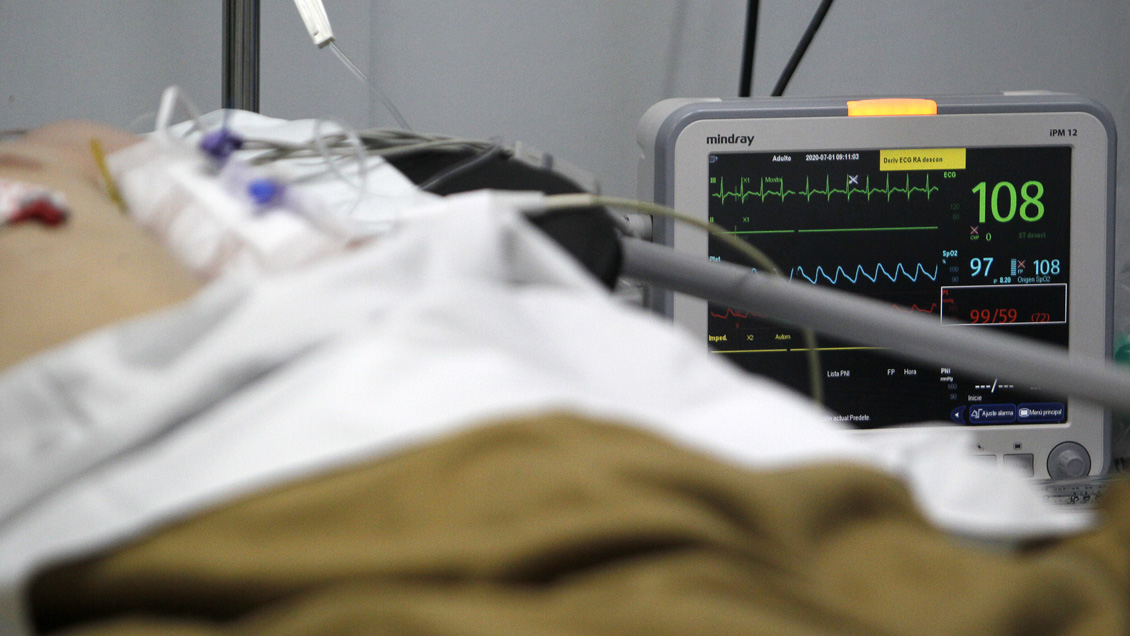
the Chilean Society of Emergency Medicine (Sochimu) warned that the health system is “very over-demanding” and that the “pandemic of indolence” has become latent, along with that of the coronavirus. with certain groups of people who, despite the situation, continue to violate health measures and participate in clandestine parties.
In conversation with What Remains of the Day, The president of the Sochimu, Luis Enberg, Added to the so-called concern of the authority for these events, which continue to register despite health restrictions, and pointed out that “it is worrying to see people in their 30s, 40s, who arrive very serious: it is terrible to see them because they arrive asking for help, desperate, with the feeling that they are going to die “.
“Les young people who think you are not going to give them, who participate in parties and misuse permits, the only thing they show is indolence“And this is another pandemic that exists, that doesn’t matter what happens to the other because it’s not going to happen to me,” he criticized.
In this sense, he said that “what these people do not understand is that when they go to parties they go looking for death, and this death may not be ‘consumed’, but it may be given to other people, to relatives, to their loved ones, to companions, to friends, and that speaks of indolence. “
President of the Society of Emergency Medicine: People who go to parties go to look for death, and it may not be for them, but they can give it to relatives and loved ones, and that speaks of indolence #CooperativaEnCasa https://t.co/VIB4llMjmH
– Cooperativa (@Cooperative) April 12, 2021
Covid-19 “is a very cruel disease because it causes people to die alone, and many times it doesn’t even get to say goodbye to their loved ones,” so “it makes me very angry, it makes me angry, because ( those who fail to comply with the measures) are people who are not aware of the harm they are doing or the effort being made “in the health network,” he stressed.
“I worry about where society is going: if there is a percentage of people who only care about their well-being and have fun, we will build a very inadequate society,” he questioned. All this while “I see how tired the health teams are, how licenses come because people don’t give more, because physically and emotionally they are very tired.”
Given these facts, “maybe we should campaign just like cigarettes, From starting to put up posters on the street and show how people are dying, and every day show in all media how many people are dying, because it’s the same as a plane crashing daily“And people don’t understand it,” said the head of the Emergency Department at UC-Christus Clinical Hospital.
“IF THE TREND CONTINUES, WE WILL COME TO COLLAPSE”
According to the daily balance of the Ministry of Health, the occupancy of critical beds reached 97%, despite having exceeded 4,000 installed, with only 135 available. The trend is close to the 300 internationals weekly.
That has meant more stress in the same emergencies, and “represents that we have to stay longer than we would like with critical, intubated patients, who require fairly close monitoring, which is achieved when they are in the critical care unit. “.
“While in Emergency we are able parents to treat these patients, the ideal place for them to be is in the critical patient unit: In the ICU a nurse can see four patients, and at one end a little more; in the Emergency Department we do not have this limitation, people constantly come to us, then a person who asks for a lot of nursing care and doctors, can not be given the ideal because the emergency doctor, once he sees and stabilizes a patient, it has to do with another, another and another, “he said.
Sochimu is developing a cadastre on the situation in the Emergency Department in the Metropolitan Region, which appears as the most representative area at the national level, because – still “centralist” – is “where there are the most critical patients and where the largest number of emergency scientists is concentrated” .
“The figures we are gathering today, and we are missing some centers, are there 443 patients waiting for a critical patient bed, Which are intermediate and ICU, and 25 patients in the emergency room with invasive ventilation waiting for a bed“, He detailed.
the system is “extremely overexposed, and if we continue with this trend we will reach a collapse (..) that is when more patients cannot be received, and at the moment we have the capacity to receive, but we are very over-demanding, “he said.
President of the Society of Emergency Medicine insists that “the system is extremely over demanded” by Covid: If we continue with this trend we will reach a collapse #CooperativaEnCasa https://t.co/ba6y3Pc2FW
– Cooperativa (@Cooperative) April 12, 2021